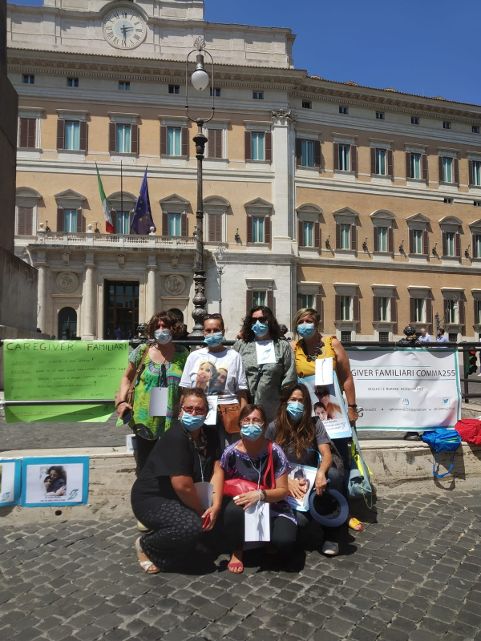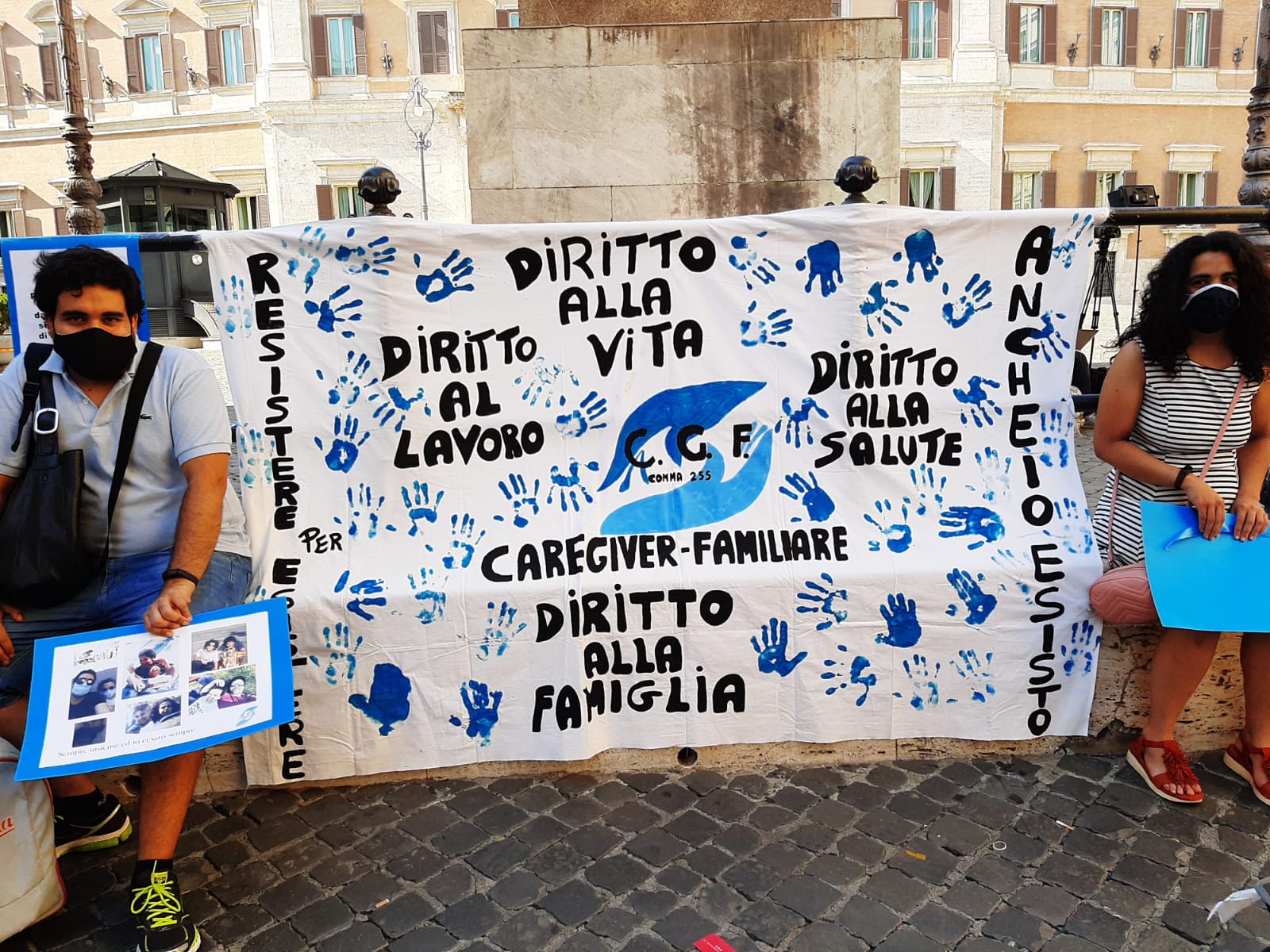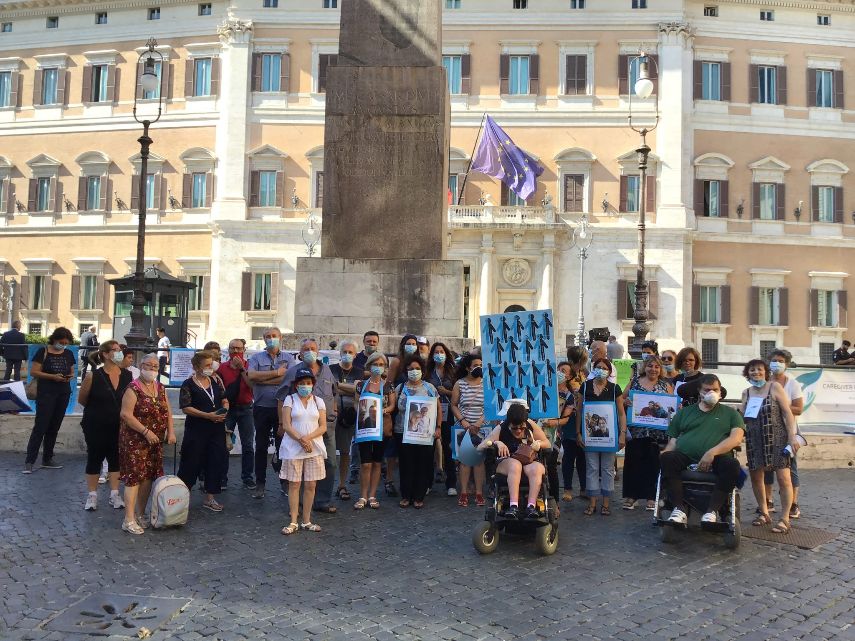From the moment he gets up in the morning until he goes to sleep at night, the family caregiver builds a adapts its existence around needs of the person with disabilities serious that he takes care of. A person who, due to a problem that is not necessarily physical or sensory but, above all, intellectual behavior is not able to perform daily acts alone such as, in fact, getting out of bed, going to the bathroom, eating, drinking, managing a social life . Disability means that 24 hours a day, 365 days a year, someone else takes care of all this and much more. From personal care to the handling of bureaucratic practices – numerous and cumbersome -, up to the management of socio-health personnel that during the week occupies the patient’s daily routine (physiotherapy, speech therapy and so on) invading, albeit for a good purpose, the shared spaces of a family environment in which the person with disabilities is not the only one living. The family caregiver can be a parent, sibling, child or next of kin. Whatever the degree of kinship, we are talking about a person who resides with the disabled person and who dedicates his entire existence to the needs of his relative. A person that, for love but also why there are no alternatives, she is forced to give up her job, her sociality, her ambitions and her dreams. In Italy, unfortunately, this figure is given too much for discounted: his rights are hardly recognized and recognizable, and the family caregiver finds himself relegated to a sort of limbo in which his identity floats between not being officially disabled in the first person (while actually leading an existence marked by same limitations) but no longer a “normal” citizen.
We hear about it a little more often in recent years, thanks to the tireless efforts of many associations and family caregivers throughout the country, and the approval of the Law 205/2017 (article 1, paragraph 255) which recognizes the figure. But there is still a long way to go.
To talk to us about this and many other things is Sofia Donato54-year-old Roman, spokesperson for the independent collective Comma 255 (whose name derives precisely from the Law of 2017), a group of family caregivers residing throughout the Peninsula, who in time Covid spontaneously gathered, then when most of the care services for disabled people had been interrupted and the burden of their care had fallen even more on the already tried shoulders of family caregivers.
“I am a mother of two children, one of whom is 25 years old with a relational intellectual disability. My daughter is without diagnosisand it is completely not self sufficient, this means that he is unable to live independently. It is I who carry out the activities of daily life for her and with her. From a management point of view, the relational intellectual disability it is even worse than physical or sensory, because the person is unable to tell if he is experiencing pain, nor to identify and indicate the point in his body where this pain occurs. Not even he knows how to identify and distinguish his emotions and feelings. If my daughter is sick it’s only me who understands it, I who spend with her 24 hours a day and who have learned to read the signs of her suffering or annoyance on her face. What I do, what a family caregiver does every day, is done with great love and a sense of responsibility, but one must understand once and for all that it is not a choice.
What we, as a collective, intend to denounce is the fact that too often our rights are not respected – of human beings and citizens – by all levels of the public administration which, through laws, reforms and budget approvals, recognizes the figure of the family caregiver but does not protect it. Funds are officially allocated to family caregivers which, on balance, are paid exclusively to the third sector, which will logically take care of providing services to my daughter (who has a disability) but not to me who takes care of them. . However, if the funds are intended for family caregivers, why can’t they be the ones who use them directly? ”.

family caregivers by the Lazio regional administration
Can you give some examples?
“And how. A few days ago the news came that the Lazio Region, where my daughter and I live, has set up training courses for family caregivers. After the curtailment of the care allowance for the seriously ill and the questionnaire imposed on family caregivers by the regional administration, now comes this new form of mortification towards us. After 25 years of caring for my daughter, does anyone really think that I or other family caregivers like me need some training? And which professional could explain more to us than we have already learned in the field? We are the only ones to live with our relatives 24 hours a day, 365 days a year. We learn to respond to the behavior of our loved ones with disabilities by modeling ourselves on their requests and needs, we renounce ourselves and our aspirations to support and lead the condition of disability of those we take care of, and everything that the regional administration knows offer us training courses and psychological support? Disability training for our relatives is inherent in their syndromes ”.
However, a training course could be useful in conjunction with the diagnostic phase …
“Exactly, certainly not after decades of diagnosis, when all there is to know has been learned. When making a diagnostic and therapeutic path, of any kind, the reference professional must be able to give all the information necessary to follow and support that path. As parents we are already constantly subject to ‘parent training’, and then we are the ones who train the staff who enter our homes for the particular needs required by our child’s condition “.
What, on the other hand, would the figure of the family caregiver really need in our country?
“We start from the assumption that family caregivers are a large audience, especially in Italy where there is still no reference law that defines us and individuals. It is necessary to focus attention on the figure of the family caregiver by emancipating it, promoting a policy of insertion or reintegration into work and social security protection of its state of health: because we are talking about people constantly subjected to strong stress. We never pull the plug, we represent not only the present and the future, but also the historical memory of our relatives. If we get sick, even psychologically, it is also the ruin for them who do not even know how to express their basic needs. What would help us would be our own financial support, to be available according to our needs, not the use of the funds destined for us for the creation of useless training courses that add nothing to anyone. It is necessary to use the funds that the State has allocated and allocates to family caregivers in order to build for them a path of emancipation equal to that which women have faced in recent decades ”.

Moreover, women are the main family caregivers, right?
“Exactly, it is often mothers, daughters, sisters who become caregivers at 360 degrees, who give up their work, social life, etc.”
With what criteria should the financial support you speak of be disbursed?
“Based on a personalized assessment of the family caregiver, taking into account the nature of the patient’s disability, the home of the cohabiting group, the economic condition of the family caregiver himself, etc. Once the family condition has been recognized, only one caregiver is identified (because in effect there is only one person who takes care of a severely disabled relative in an all-encompassing way). Often we talk about single parents (because one of the two is gone), without work, sometimes very tried. Then support policies must be put in place that respect the choices of the family caregiver himself (the psychologist, for example, if requested by the family caregiver, must be elected on the basis of trust rather than imposed from above and, if there is any need, in the absence of resources, the public psychological service available to any citizen is used), but also employment and reintegration policies, especially in the dramatic case in which the severely disabled child dies and the parent suddenly finds himself without a purpose in life, with the inconsolable pain of such a great loss and no longer a social and work life to hold onto. Years and years as a family caregiver teach the most important and difficult job in the world: that of ‘life organizers’. We have skills that can offer practical support in various professional fields, from expertise in services to that in the third sector, to disabled managers. In any case, we must be able to choose, as do all ordinary citizens. We must also be able to decide to go back to work at least a few hours a day, if desired, because leaving the house rehabilitates one’s social condition. In short, the assessments must be made on a case-by-case basis, otherwise family caregivers will be increasingly condemned to a condition of marginalization. And then, as a good rule, one should enter the lives of others on tiptoe, perhaps listening and studying… before regulating ”.
